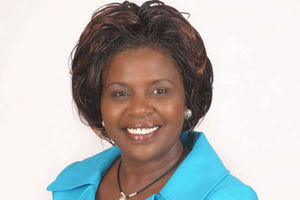Gabon since independence in 10 dates

Ali Bongo Ondimba waves as he leaves the Elysee Palace after a meeting with French President Nicolas Sarkozy at the Elysee Palace in Paris, on February 21, 2011.
Key dates since independence in Gabon, the oil-rich West African country where army officers said Wednesday they had deposed President Ali Bongo.
1960: independence
Gabon becomes independent from France on August 17, 1960, with Leon M'Ba elected president the following February.
Three years later he is ousted in a coup, before being reinstated following a military intervention by France.
1967: Bongo era begins
M'Ba dies in 1967 and is succeeded by his deputy, Albert-Bernard Bongo.
Bongo sets up a one-party state, ruling with an iron fist and benefitting from oil exploitation.
He converts to Islam in 1973, changing his name to Omar Bongo.
As sole candidate, he is elected president in 1973, 1979 and 1986.
A multi-party system is introduced after social unrest and riots in 1990 but Bongo nonetheless wins the elections in 1993, 1998 and 2005.
2009: from father to son
Bongo dies in June 2009 and, after a controversial election that August, one of his sons, Ali Bongo, is sworn in in October as president.
Despite a challenge, the constitutional court approves the election results but there is deadly post-poll violence.
The opposition slams Bongo's "authoritarianism".
In 2010 French prosecutors open a probe into property in France owned by Bongo and other African heads of state.
2014: social unrest
Violence breaks out in 2014 between supporters of the opposition and security forces during a banned demonstration calling for Bongo to stand down.
2016: post-election turmoil
The 2016 vote takes place in a tense domestic climate.
The government is battling various fronts, with strikes, budget problems and plummeting oil prices.
Bongo's main rival is opposition leader Jean Ping, a veteran diplomat who once headed the African Union Commission and held senior posts at the United Nations.
When the electoral commission announces Bongo has won, a massive wave of deadly post-election violence breaks out.
2018: stroke
Bongo has a stroke in October 2018 while in Saudi Arabia.
He is transferred to Morocco for treatment and his convalescence lasts several months.
2019: failed coup
On January 7, 2019 renegade soldiers carry out a coup bid, profiting from Bongo's absence.
2022: nine of Bongo's children charged
From March to July 2022, French prosecutors charge nine of Omar Bongo's children with corruption, including for embezzlement of public funds related to assets acquired in France.
They claim the family held assets estimated at 85 million euros in France.
2023: new constitution
In April 2023, the Gabonese parliament votes to amend the constitution and reduce the president's term from seven to five years.
Sections of the opposition criticise the changes, in particular the end of two rounds of voting, as a means of "facilitating the re-election" of Bongo.
2023: post-election coup
Military officers said Wednesday they have overturned the government in an apparent coup after it is announced that President Ali Bongo had won a contested election with 64.27 percent of the vote.





